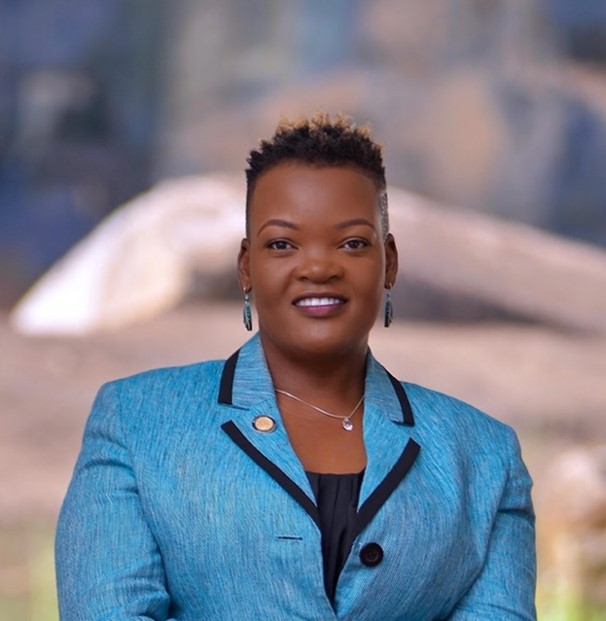
We are very pleased to share that Schola Matovu, PhD, RN, a distinguished 2021-2022 GloCal Health Fellow, has achieved remarkable milestones in her career in gerontological nursing and her work to alleviate social injustices such as poverty, gender and health inequalities in the global community. Dr. Matovu received a K01 Mentored Research Scientist Career Development Award from the NIH Fogarty International Center, a testament to her innovative research and commitment to advancing global health. She will pursue a 5-year study in Uganda to further refine and adapt the Building A Joint Action for JaJJAs (BAJJAJJA) intervention for grandmother-caregivers that she developed during her time as a GloCal Health Fellow. The GloCal fellowship support enabled Dr. Matovu to build a strong foundation for her current research that she achieved by (1) establishing relationships with key community partners (2) building a professional network at Makerere University in Uganda; and (3) piloting the BAJJAJJA intervention, an innovative, multi-component intervention constituting of an income generating activity, and health coaching for grandmother-caregivers. Findings from the pilot study will inform her 5-year study as she continues to refine and adapt BAJJAJJA that aims to promote health and wellbeing of rural-dwelling grandparent-caregivers. Her work addresses critical gaps in caregiving resources and seeks to empower communities with sustainable interventions.
Additionally, Dr. Matovu was selected as one of 16 fellows for the nationally competitive Betty Irene Moore Fellowship for Nurse Leaders and Innovators at UC Davis. With the Moore fellowship support, Dr. Matovu will receive additional leadership development and extend her research to Utah where more than 24,000 grandchildren are under the care of their grandparents, mostly due to the opioid epidemic. As a Betty Irene Moore Fellow, Dr. Matovu joins an elite cohort of nurse leaders dedicated to transforming healthcare systems and advancing nursing science. The fellowship will provide her with resources, mentorship, and opportunities to further amplify the impact of her research and leadership. She looks forward to dedicated time to continue advancing her program of research both in rural Uganda and Utah.
In addition to these research initiatives, Dr. Matovu was recently appointed as the University of Utah College of Nursing (UUCON) Interim Director for Global Learning and Engagement. This position allows her to oversee the strategic planning efforts to develop the UUCON global learning program and continue contributing to advancing the global learning mission within the college, wider campus community and among global health partners. These achievements reflect Dr. Matovu’s exceptional dedication to global health and her role as a trailblazer in nursing innovation and leadership. As a GloCal alumna, she continues to inspire the next generation of researchers committed to equity and excellence in global health.
The GloCal Health Fellowship congratulates Dr. Matovu on all her achievements and looks forward to seeing her continued contributions to the fields of gerontology and global health!
“I express my profound gratitude for the GloCal Fellowship's invaluable support and guidance, which have enabled me to establish a strong foundation for my research program in Uganda and now the US!” - Schola Matovu, PhD, RN
Want to learn more about Dr. Schola Matovu’s work? Check out her recent publications!
- Matovu, S. N., Watt, M., Young, H. M., Nakasujja, N., & Ellington, L. (2024). Using Grounded Theory to Develop a Substantive Theory for Grandparent-Caregiving in Uganda: The GRACE Model. Journal of transcultural nursing: official journal of the Transcultural Nursing Society, Advance online publication. https://doi.org/10.1177/10436596241253862
- Matovu, S. N., Whitley, D. M., & Young, H. M. (2024). A Global Perspective on Intersecting Social and Systemic Barriers Experienced by Grandparent-Caregivers: A Qualitative Systematic Review. GrandFamilies: The Contemporary Journal of Research, Practice and Policy, 7 (2)
